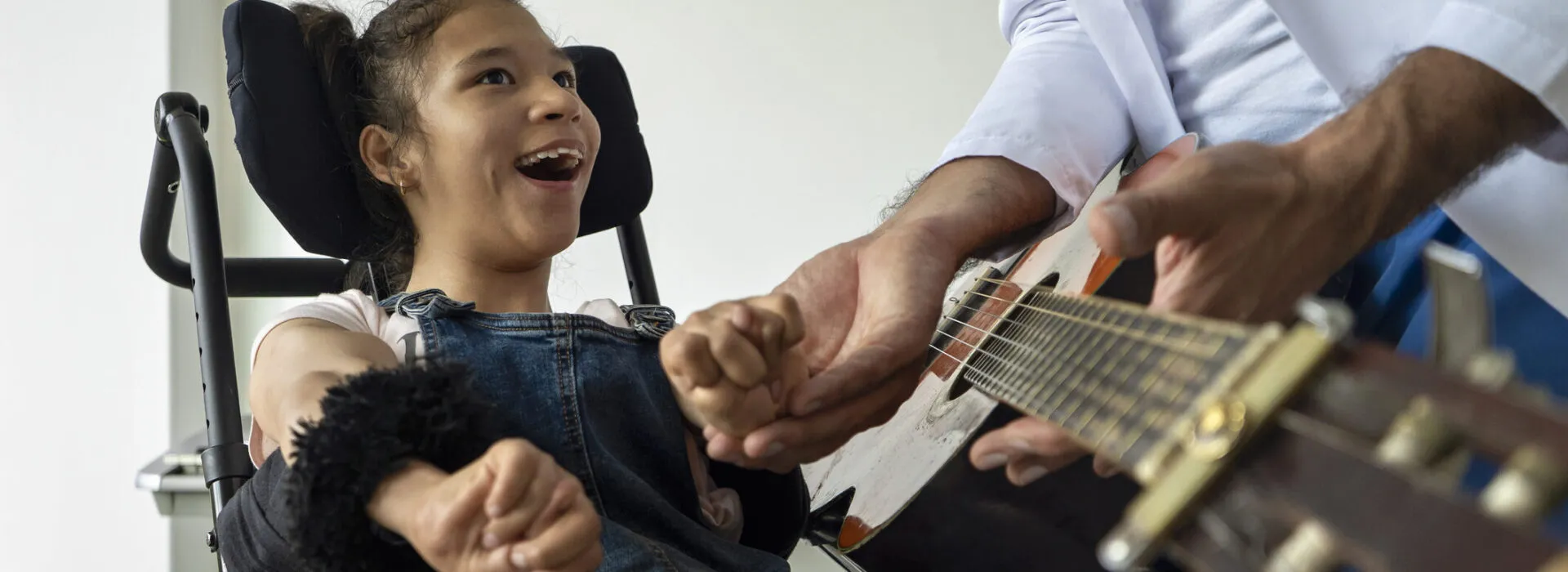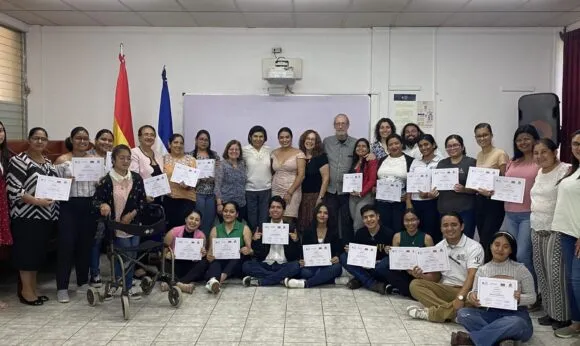
The Future of Care for Children with Medical Complexity Virtual Café Series
Connect families, health professionals, and social workers to understand what matters most to children with medical complexity (CMC) and their families.
- Impact Areas:
- Health & Mental Well-being
- Human Rights & Social Justice
Impact
This inter-disciplinary café-style series, funded by the Lucile Packard Foundation for Children’s Health (LPFCH), will offer short presentations by nationally recognized experts in the care of CMC, including family partners. The sessions will focus on facilitated, active group discussion aimed at advancing policy, clinical practice, research, and interdisciplinary education.
Where We Are Now & Where We Need to Go

In the first café, Cara Coleman, JD, MPH, The Bluebird Way Foundation, and Meg Comeau, MHA, CISWH, provided a brief overview of key topics, major frameworks, and emerging trends to advance the quality of life and well-being of CMC and their families through federal, state, and local initiatives. Bethlyn Houlihan, MSW, MPH, CISWH, took a deep dive into participants’ questions and facilitated large group discussion to garner insights into improving systems of care of CMC including actionable strategies, resources, and leverage points for change. This series is funded by the Lucile Packard Foundation for Children’s Health.
Synthesis Materials:
Discussion Materials:
Humanism in Clinical Care to Meet Whole Child/Family Needs

In this session, Bethlyn Houlihan, MSW, MPH, CISWH, and Dennis Kuo, MD, MHS, University of Rochester, shared current framing around what matters most to families from the published article, “What Families of Children With Medical Complexity Say They Need: Humanism in Care Delivery Change”, focusing on strategies for humanism in practice to improve care delivery and mitigate systems-level bias. Participants then explored how to reinvigorate human-driven approaches to meet whole child/family needs in systems of care. This series is funded by the Lucile Packard Foundation for Children’s Health.
Synthesis Materials:
Discussion Materials:
- What Families of Children With Medical Complexity Say They Need: Humanism in Care Delivery Change
- Measuring What Matters to Children With Medical Complexity and Their Families
- OPENPediatrics Complex Care Journal Club Podcast: CISWH Experts Share Best Practices for Ensuring Human Dignity in Care for Children with Medical Complexity
Meaningful Policy Opportunities that Matter to Families

The third of six virtual cafés was led by discussants Lisa Kirsch, MPAff, of Dell Medical School and Meg Comeau, CISWH senior project director. In this hour-long cafe, they shared framing around the current policy landscape for children with medical complexity. Through facilitated discussion in breakouts, participants explored and learned together where policy opportunities lie for both small and big changes at the local, state, and national levels.
Synthesis Materials:
Discussion Materials
Family-Driven Approach to Understand Family Well-Being and Its Facilitators

The fourth of six virtual cafés was led by discussants Jay Berry, MD, MPH; Katie Huth, MD, MMSc, FRCPC; and Nikki Montgomery, MA, MEd, GPAC. In this hour-long cafe, experts shared framing around the current state of research priorities for children with medical complexity, including family-driven measurement. Through facilitated discussion in breakouts, participants explored and learned together where meaningful research opportunities lie to advance policy and practice.
Synthesis Materials:
Discussion Materials:
Health Equity and Anti-Ableism Through Family Partnership

This café was led by discussants Nikki Montgomery, MA, MEd, GPAC, Director of Strategy and Communications, Family Voices, mother of a child with medical complexity; and Michelle J. White, MD, MPH, Associate Professor of Pediatrics, Duke University School of Medicine. Discussants gave examples of the pressing need to address bias in systems of care and move from a medical to social model of care, and key ways family colleagues’ lived expertise is essential to humanizing systems. Through facilitated discussion in breakouts, participants explored and learned about tangible tools, strategies, and resources to effectively partner with families to make real progress in health equity and anti-ableism.
Synthesis Materials:
Discussion Materials and Resources:
Sustainability and Strategic Partnerships

The final of six virtual cafés was led by discussants Rahel Berhane, MD, Jeff Schiff, MD, MBA and Rich Antonelli, MD, MS. Dr. Berhane shared a real-world example of moving from consultation to true family partnership in co-designing sustainable systems centered on humanism. Dr. Schiff offered a strategic yet practical perspective of the necessary elements for advancing sustainable care, embracing a pragmatic philosophy of radical incrementalism inclusive of building trust with Medicaid. Dr. Antonelli elevated existing leverage points for sustainable change. Through facilitated discussions with the full group, participants explored together strategies they can employ to make progress towards meaningful sustainability and strategic partnerships for humanistic care.
View the presentation slides here.
Synthesis Materials:
Discussion Materials and Resources:
Key Partners
Convergent partnerships are at the heart of what we do. We are proud to partner with federal and state agencies, non-profit and advocacy organizations, philanthropic institutions, and universities to elevate social work leadership and to create equitable health and mental health care systems for all.


